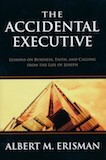Glorify God in Your Life’s Work
Daily Reflection / Produced by The High Calling
So the elders of the Jews continued to build and prosper under the preaching of Haggai the prophet and Zechariah, a descendant of Iddo. They finished building the temple according to the command of the God of Israel and the decrees of Cyrus, Darius and Artaxerxes, kings of Persia. The temple was completed on the third day of the month Adar, in the sixth year of the reign of King Darius.
Ezra 6:14-15
Given the focus in Ezra upon the rebuilding of the temple, people’s jobs are mentioned when they are relevant to this effort. Thus the list of people returning to Jerusalem specifically itemizes “the priests, the Levites … and the singers, the gatekeepers, and the temple servants” (Ezra 2:70). The text identifies “masons and carpenters” because they were necessary for the building project (Ezra 3:7). People whose skills did not equip them for working directly on the temple contributed to the task through the fruit of their work in the form of “freewill offerings” (Ezra 2:68). Thus, in a sense, the rebuilding of the temple was the work of all the people as they contributed in one way or another.
Ezra identifies political leaders in addition to Cyrus because of their impact, positive or negative, on the construction effort. For example, Zerubbabel is mentioned as a leader of the people. He was the governor of the territory who oversaw the rebuilding of the temple (Haggai 1:1). Ezra mentions “Rehum the royal deputy and Shimshai the scribe,” officials who wrote a letter opposing the temple’s reconstruction (Ezra 4:8-10). Other kings and officials show up according to their relevance to the rebuilding project.
The temple is what the project was about, but it would be a mistake to think that God blesses craftsmanship and material work only when it is devoted to a religious purpose. Ezra’s vision was to restore the whole city of Jerusalem (Ezra 4:13), not just the temple. This point is even clearer if you read Nehemiah, who actually undertook the work beyond the temple.
Ezra describes several efforts to squelch the construction (Ezra 4:1-23). These were successful for a while, stopping the temple project for about two decades (Ezra 4:24). Finally, God encouraged the Jews through the prophecies of Haggai and Zechariah to resume and complete the job (Ezra 5:1). Moreover, Darius, king of Persia, underwrote the building effort financially in the hope that the Lord might bless him and his sons (Ezra 6:8-10). Thus the temple was finally completed, thanks to the fact that God had “turned the heart of the king of Assyria to them” so that “he aided [the Jews] in the work on the house of God” (Ezra 6:22).
As this verse makes clear, the Jews actually did the work of rebuilding the temple. Yet their labors were successful because of help from two pagan kings, one who inaugurated the project and the other who paid for its completion. Behind these human efforts loomed the overarching work of God, who moved in the hearts of the kings and encouraged his people through the prophets. As we have seen, God is at work far beyond what meets the eye of his people.
QUESTIONS FOR FURTHER REFLECTION: Rebuilding the temple in Jerusalem became Ezra's life's work. Do you have a sense of your life's work? How is God glorified and honored in your life's work? Ezra's life's work was put on hold for two decades for political reasons. Does your life's work feel like it is on hold or like it is moving forward?
PRAYER: God in Heaven, we want our lives to matter. Sometimes we are so close to our work that we lose sight of the big picture of what you are doing through us. When we look at Ezra's life, it is easy to get discouraged and feel relatively unimportant. Yet even Ezra went through a period of frustration in his work for twenty years! Help us stay faithful and focused during periods of frustration.
Help us have a strong sense of purpose and confidence in our work. Give us a vision for how your kingdom is being revealed through our lives. Most of all, God, we are so deeply grateful for the privilege of serving you every day in all that we do. In our families, in our churches, in our workplaces, and in our local communities, let your will be done on earth as it is in heaven. Amen.
P.S. from Mark: This week I'm taking a short break from our devotional study of Ephesians to focus on issues related to our work as Christians. The following reflections are based on an article I did for the Theology of Work Project which investigated what the Old Testament books of Ezra, Nehemiah, and Esther teach us about our work. I highly recommend the Theology of Work Project website. It provides a unique resource for Christians who are wanting to make connections between their faith and their daily work. I also want to thank my colleague, Marcus Goodyear, for helping me to produce our reflections for this week.
Image courtesy of Laity Lodge, one of our sister programs in the Foundations for Laity Renewal.






